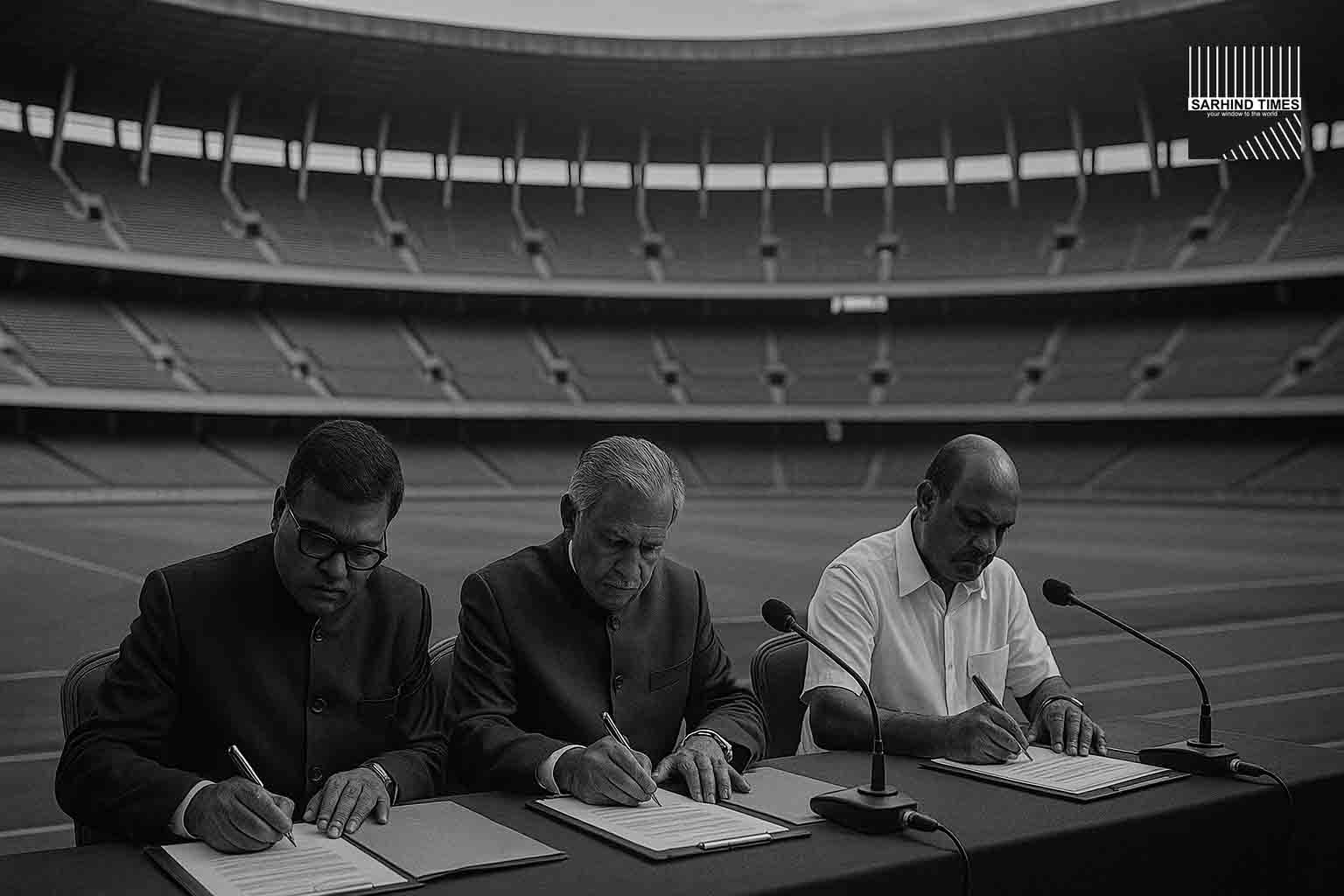19 Sep 2025
Indian Football at a Turning Point
For years, Indian football has been caught in governance wrangles, compliance hurdles, and court interventions. Now, the Supreme Court’s approval of the All India Football Federation (AIFF) constitution marks a watershed moment. By endorsing the new draft and clarifying that no re-election is required, the court has handed AIFF a much-needed path to stability. Kalyan Chaubey, who took over as president in 2022, will remain in charge until the end of his elected term, ensuring continuity in leadership as reforms are rolled out.
Background: Why AIFF Needed Judicial Oversight
The AIFF has faced governance challenges for more than a decade. Issues included:
- Membership Disputes: Confusion over voting rights for state associations versus players.
- Election Irregularities: Multiple court cases challenged past elections.
- FIFA Suspension Threats: In 2022, FIFA briefly suspended AIFF citing “third-party interference.”
- Sports Ministry Monitoring: The ministry and courts had to oversee reforms to align with the National Sports Code.
The Supreme Court was tasked with overseeing the drafting of a constitution that balanced autonomy, transparency, and compliance with FIFA statutes.
What the Supreme Court Ruled
In its ruling, the Supreme Court:
- Approved the new AIFF constitution, covering membership, elections, and dispute resolution.
- Held that no fresh elections are necessary, letting the current office-bearers continue their tenure.
- Directed AIFF to implement reforms transparently, with compliance monitored by stakeholders including the sports ministry and FIFA.
This provides clarity after years of court-monitored limbo.
Why the New Constitution Matters
The approved draft introduces several reforms:
- Membership Clarity: Streamlined roles for state associations, academies, and other affiliates.
- Dispute Resolution: Codified mechanisms to reduce litigation and ensure faster decision-making.
- Election Transparency: New rules to prevent disputes that plagued earlier cycles.
- Global Alignment: Bringing AIFF statutes in sync with FIFA and AFC requirements.
Together, these measures are designed to restore AIFF’s credibility domestically and internationally.
Impact on Leadership: Continuity with Kalyan Chaubey
One of the most significant aspects of the ruling is that Kalyan Chaubey will remain AIFF president through his term. Supporters argue continuity allows AIFF to focus on reforms instead of elections. Critics, however, question whether stronger accountability mechanisms are needed to balance stability with transparency.
Nonetheless, Chaubey’s leadership now carries the weight of implementing the court-approved charter, strengthening leagues, and rebuilding trust with players and fans.
For Players and Clubs: Predictability Returns
For athletes and clubs, the new governance framework is expected to yield tangible benefits:
- Youth Development: Streamlined decision-making could help expand academies and grassroots programs.
- League Calendars: More predictable scheduling, reducing clashes between domestic and international commitments.
- Commercial Growth: Stability could unlock sponsorships, broadcast deals, and investment in infrastructure.
- Women’s Football: A clearer mandate to strengthen the women’s game, which has often been sidelined.
Predictability in governance directly impacts performance, as seen in countries where federations provide consistent support to clubs and national teams.
Global Context: FIFA and Sports Ministry Oversight
The sports ministry will monitor compliance with the National Sports Code, while FIFA and AFC will track AIFF’s alignment with global statutes. For India, maintaining credibility with FIFA is vital to avoid future suspensions and to secure hosting rights for tournaments.
Observers say the court’s approval could also pave the way for fresh bids to host international events, once AIFF demonstrates transparent operations under its new framework.
Challenges Ahead
Despite the milestone, challenges remain:
- Implementation Gap: Writing a constitution is easier than enforcing it. AIFF must ensure reforms don’t stay on paper.
- Transparency: Civil society groups and former players will watch how elections and disputes are handled under new rules.
- Performance Pressure: India’s national teams need better results to inspire faith in reforms.
- Commercial Viability: Without strong leagues and grassroots, governance changes alone may not attract investment.
Expert Voices
- Legal Analysts: “The court’s restraint underscores that sports bodies must govern themselves, but within a constitutional framework.”
- Former Players: “We welcome the clarity. What matters now is whether players see the benefits on the ground.”
- Economists: “Predictability could attract more private capital into Indian football.”
Conclusion: A Chance to Reset
The Supreme Court’s green light for AIFF’s constitution is more than a legal milestone—it’s a reset button for Indian football. It offers the chance to build transparent governance, attract investment, and give athletes the structured support they deserve.
For AIFF, the opportunity is historic. For Kalyan Chaubey, the responsibility is heavy. And for Indian football fans, the hope is that governance reforms will finally translate into progress on the pitch.
#AIFF #SupremeCourt #IndianFootball #Governance #KalyanChaubey #SportsLaw #FIFA #IndiaSports #SarhindTimes




+ There are no comments
Add yours